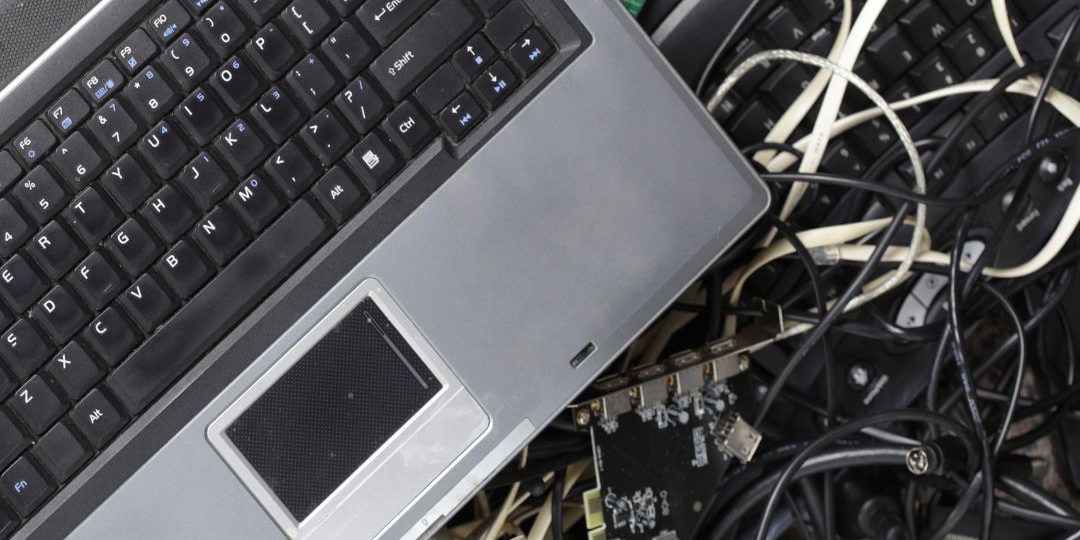What is WEEE waste and why should businesses be making an effort to recycle these items?
In today’s world, our love of gadgets and household items grows every year. Having more than one television or laptop per household is no longer uncommon. However, as natural resources become scarce, sorting and recycling these products when they’re no longer in use is more critical than ever.
What is WEE Electrical Waste?
WEEE, or Waste Electrical and Electronic Equipment, is a growing waste stream that poses a number of environmental and health challenges. WEEE includes a wide range of devices, from computers and smartphones to fridges and washing machines. These devices contain various materials, including metals, plastics and hazardous substances such as mercury and lead.
When WEEE is disposed of improperly, it can release these hazardous substances into the environment, polluting soil and water and posing a risk to human health. WEEE can also end up in landfills; however, it is breaking the law if it ends up here, which takes up space and releases harmful greenhouse gases.
WEEE Recycling is essential to reducing its environmental impact. WEEE recycling facilities can recover valuable materials such as metals and plastics, which can be reused to make new products. This helps to conserve natural resources and reduce greenhouse gas emissions.
How to recycle WEEE Waste
The treatment of WEEE electrical recycling varies depending on the type of WEEE and the technology used. Some facilities use large-scale shredders, while others disassemble WEEE manually, automatically, or with a combination of both.
This can be a minefield if you’ve never recycled electronic equipment before; as an environmental solutions company, we can take care of all of it for you. We offer a wide variety of services, such as the collection and recycling of WEEE waste, disposal of hazardous materials, education and awareness-raising about WEEE waste.
Do batteries count as WEEE Waste?
Batteries do not count as WEEE Waste; however, batteries contain hazardous materials that can also be found in WEEE Waste that need to be efficiently disposed of. Many batteries contain heavy metals such as lead, mercury and cadmium. Like WEEE Waste, these metals can be harmful to human health and the environment if they are not disposed of properly. Many retailers that sell batteries will also accept them for recycling. To recycle batteries, you can also take them to a local electronics recycling centre or hazardous waste disposal facility.
WEEE battery recycling has been made a lot easier in recent years and is more commonly thought about than the recycling of electronic products; however, there are still a couple of rules you should follow when recycling batteries. Some people aren’t aware that it is illegal to dispose of batteries in a standard bin in the United Kingdom, so making sure you know how to dispose of batteries is essential.
To prevent fires from lithium-ion batteries, tape battery terminals and/or place batteries in separate plastic bags and never put these batteries in household garbage or recycling bins.
For easy battery recycling solutions, get in touch with us!
How can I reduce my WEEE Waste?
Recently, phones have become a more common electrical item that need to be recycled. Phone recycling is a growing problem and vital for several reasons. First, phones contain various valuable materials, such as gold, silver, and copper. These materials can be recovered and reused in new products, which helps to conserve natural resources. As phones are classified as WEEE Waste, there are many ways that you can reduce your WEEE Waste, such as donating it to someone else so that you don’t have to get them disposed of professionally.
Electronics recycling can become quite a chore as it requires specialist help. There are many effective ways that you can reduce your WEEE Waste, such as:
- Buy durable products that are designed to last. When you buy a new electronic device, look for one made from high-quality materials backed by an extended warranty. This will help ensure your device lasts for as long as possible.
- Repair broken products instead of replacing them. If one of your electronic devices breaks, don’t just throw it away. Try to repair it first. Many repair shops specialise in electronic devices. You can also find repair tutorials online.
- Donate unwanted products to charity or sell them online. If you have electronic devices that you no longer use, don’t throw them away. Donate them to a charity or sell them online. This way, your devices can be used by someone else.
- Recycle WEEE properly when it reaches the end of its life. When you have an electronic device that can no longer be repaired or used, recycle it properly. Many local authorities have curbside WEEE recycling programs. Alternatively, we can handle your WEEE waste stress-free; contact us for a quick quote!
By reducing and recycling WEEE, we can help to protect the environment and create a more sustainable future.






